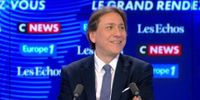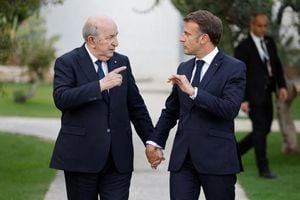On March 30, 2025, Jérôme Guedj, a prominent member of the Socialist Party (PS) and deputy from Essonne, participated in the Grand Rendez-Vous CNEWS-Europe 1, where he reflected on the left-wing political landscape in France. His remarks came in the context of the New Popular Front, a coalition formed for the early legislative elections held in July 2024. Guedj's comments reveal a sense of regret regarding his earlier expectations of Jean-Luc Mélenchon, the leader of La France Insoumise, as a unifying figure on the left.
During the interview, Guedj stated, "I was wrong in believing that Jean-Luc Mélenchon could embody a rallying point on the left." This admission underscores the challenges faced by leftist parties in France, particularly in forging a cohesive alliance that resonates with voters. The early legislative elections marked a significant moment for the left, as various factions attempted to come together under the New Popular Front to present a united front against conservative and far-right candidates.
The Grand Rendez-Vous, a collaborative effort between CNEWS and Les Echos, aims to delve into pressing political and economic topics, providing a platform for political figures, business leaders, and intellectuals to share their insights. Guedj's appearance on the show was part of this initiative, which seeks to address the concerns of the French public directly.
As the left navigates its identity and strategy in the wake of recent electoral setbacks, Guedj's reflections highlight the ongoing struggle to reconcile different ideologies and priorities within the left-wing coalition. The New Popular Front was seen as a potential solution to these divisions, yet the reality has proven more complex, with internal disagreements and varying visions for the future.
In the aftermath of the elections, many within the Socialist Party and its allies are grappling with the implications of their electoral performance. Guedj's candid acknowledgment of his misjudgment regarding Mélenchon serves as a reminder of the difficulties in establishing a unifying figure who can appeal to a broad spectrum of leftist voters.
The left's challenges are compounded by the rise of far-right movements in France, which have gained traction among voters disillusioned with traditional parties. As the political landscape evolves, Guedj's insights may resonate with others who share his concerns about the future of leftist politics in the country.
Despite the setbacks, Guedj remains committed to the ideals of the Socialist Party and the broader leftist movement. His participation in the Grand Rendez-Vous is indicative of a willingness to engage in open dialogue about the party's direction and the need for a more united approach to addressing the pressing issues facing France.
Looking ahead, the left must confront not only its internal divisions but also the external challenges posed by an increasingly polarized electorate. The upcoming political landscape will require strategic thinking and collaboration among diverse groups to effectively counter the influence of far-right ideologies.
In summary, Jérôme Guedj's reflections on the left-wing alliance during his appearance on the Grand Rendez-Vous CNEWS-Europe 1 highlight the complexities of French politics today. His recognition of past misjudgments regarding leadership within the left underscores the ongoing struggle for unity and direction as the party seeks to redefine itself in a changing political environment.






